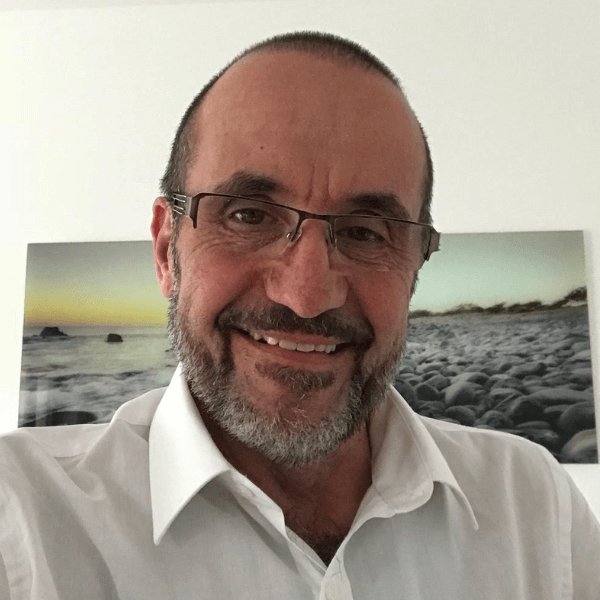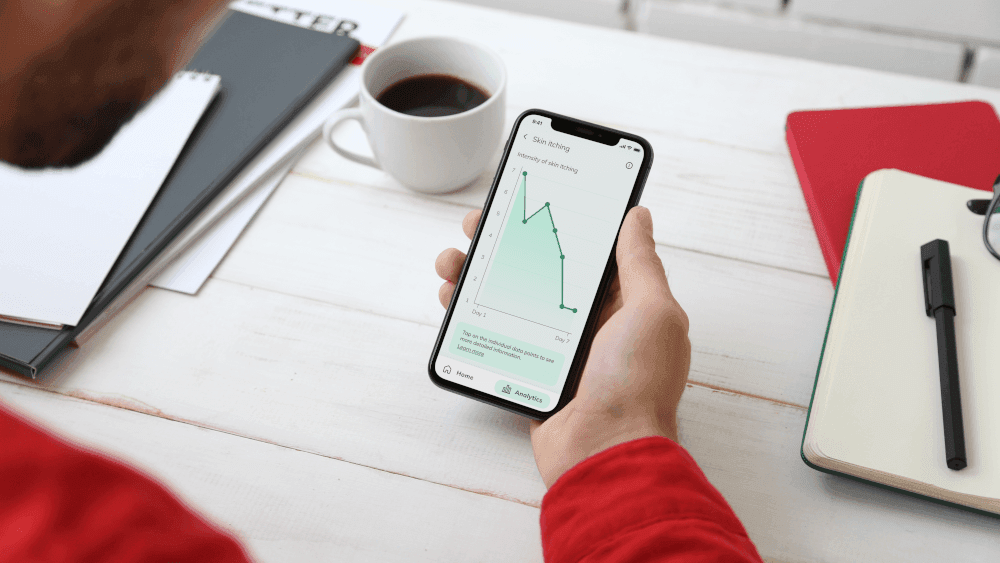How Important are Clinical Studies for People with Rare Diseases? 

DATE
September 22, 2022
AUTHOR
Frank Hennemann
Guest blog by Frank Hennemann
About me: My name is Frank and when I was six months old, I was diagnosed with a rare genetic disease for which there is still no cure.
My disease has accompanied me my whole life, with a whole host of emotions, situations, diagnoses and prognoses. I have survived the prognoses 28 times and try to make the most of every day and make every moment mine. In my life, I have realized how important it is to be aware of one’s own responsibility. I also see this in relation to my illness, which is very rare.
In 95% of all doctor/patient conversations, I explain my illness to the doctor and not the other way around. This is not an accusation because there are about 4 million people/patients with rare diseases in the whole of Germany. For patients with rare diseases, personal responsibility means staying informed, doing research and networking. People with rare diseases are usually more isolated, either because of the risk or because of a lack of understanding and fear when dealing with them.
Another important point when considering our lives as patients with a rare disease is the therapy situation. For me, for example (I suffer from Alpha1 antitrypsin deficiency), there is a long-term medical therapy, but it only slows down the course of my disease and will not cure me. Therefore, it is in my own interest to use every opportunity to maintain and protect my life and quality of life for as long as possible.
I am not only responsible for myself, but also for my relatives, my friends and my two sons, who are 13 and 15 years old. I want to be there for them for as long as possible and yes, I also want to “live, love and laugh”.
Patient-centric information opportunities for people with rare diseases
But how do I get information about clinical trials or therapy options? Especially with rare diseases, it is a bit difficult. I have found several sources for myself. These include study websites, information from my doctor, Google and social media or patient organisations. The biggest challenge with all sources is to weigh up for myself how high my personal risk is with a study – except “sometimes” with my treating doctor, who also manages to explain it to me accordingly to a limited extent. Because only very few speak “patient”.
Now I call myself a “super patient”, because I have been working in the field of health, pharmaceuticals and digitalization for many years. I know clinical trials inside out; I know the design, the structure and can therefore better assess the extent to which a study could improve my state of health. Unfortunately, a disease does not take into account the level of education, life situation and stage of the disease.
So how can one now get easier/faster access to the information for a perhaps life-saving or life-improving study? How can I design the study, both in terms of structure, language and of course, content to reach the largest possible intersection of patients?
It is essential for patients to participate in the conception of the study, the establishment of a patient board, which can give input from the beginning, both in structure, language and also an open risk assessment for the patient. In addition, also in the very special situation of a placebo study. What is a placebo study? What is the situation and of course the patient’s expectation of possibly not getting a drug?
One cannot expect a “normal” patient to be able to fully assess or evaluate their own medical situation. What then is the normal human reaction? Doubt, uncertainty and even fear. Thus, a patient will naturally decide against participating in the study that is important for them. So the participation of the patients/patient boards is essential for the design of the study from the beginning. Moreover, I also see very close support of the patients, but also of the relatives, as the key to a higher participation of patients in studies. Furthermore, a clear and simple language, risk and opportunity presentation for the patients and relatives.
Involve relatives as supporters and the role of patients in the health system
I would also like to address the issue of relatives in the context of studies, who in my opinion are involved far too rarely. There are rare diseases where the patient themself can hardly assess to what extent a study can influence their life situation, partnership or family, who are usually already overwhelmed or burdened by the situation of the disease. In my opinion, only participation in the study works here as well, since the relatives can also give important input and support.
Another point to consider in the context of studies is of course the situation of patients in our German health system. We have one of the best support systems in Europe, the best provision of therapies, measures, medicines and aftercare – even if this does not always seem to be the case on an individual level. So how should a patient who receives a good therapy be able to assess or evaluate possibly receiving a placebo that could worsen their health situation during the study period? After all, they might not receive their normal therapy at all during the study period. How can we still ensure that patients participate and perhaps improve their health situation in the long term?
Conclusion: Easy access to information and integration of patients and relatives into treatment options
My experiences, my own life and my way of looking at things have taught me the following key elements:
Patients need easy access to information and need the information about a trial in a simple language. In addition, a clear, understandable and honest explanation of the risks, but also of the possibilities of participating in the study. To this end, we patients or our relatives should be included in the study at an early stage, and of course with the relevant disease, as we know best about life as a patient.
We want to feel understood, which means that we feel heard and understood when it comes to what our lives are like with our illnesses outside of clinics, surgeries or medical facilities. Quality of life encompasses so many criteria and contexts. How do we patients define our own situation? First, our situation has to be defined and afterwards, according to our situation, a clinical trial with barriers as low as possible can be designed.
In addition, patients and relatives need to be closely supported by an empathetic medical or psychological team that can pick up on moods, assess them and react accordingly – this also provides very important help for other patients and patient organizations.
I take every opportunity to improve my life and my life expectancy for myself and, of course, for my favorite people.






